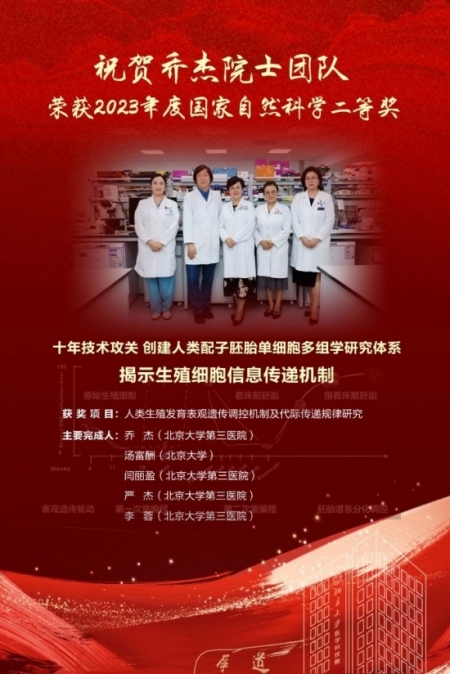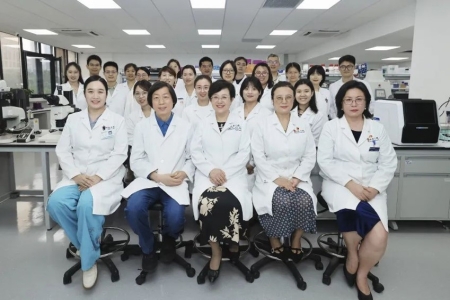Academician Qiao Jie’s Team from PKU Third Hospital Wins National Natural Science Award
On June 24th, the National Science and Technology Conference, the National Science and Technology Awards Conference, and the Member Conference of the Two Academies were held in the People’s Great Hall. The project “Research on Epigenetic Regulation Mechanism and Intergenerational Transmission Law of Human Reproductive Development” with Peking University Third Hospital as the first completion unit and Academician Qiao Jie as the first completion person won the second prize of the National Natural Science Award. It is the first time for PKU’s affiliated hospital to win the second prize of the National Natural Science Award.

The project focuses on the regulation of human germ cell development, which has been a long-standing problem for scientists, and reveals the molecular mechanism by which epigenetic reprogramming regulates changes in parental genomic information to drive germ cell fate transition.
China is facing a severe situation of negative population growth. The rate of infertility, embryo development arrest and birth defects increased year by year. Reproductive development disorders are closely related to the occurrence of various major diseases in adulthood. In view of the key links in the initial stage of life, in-depth and systematic analysis of the regulation mechanism of reproductive development is an important prerequisite for accurate prevention and treatment of reproductive disorders and developmental diseases. This project has promoted the basic research progress of reproductive development in China and has a good prospect of transformation and application. The new method of gamete embryo genetic diagnosis and evaluation has been authorized and transformed by the national invention patents and has been incorporated into industry standards and consensus. The team has been invited to publish a number of reviews in authoritative journals at home and abroad and hosted international academic conferences, which has significantly expanded China’s academic influence, promoted our country’s human reproductive development research from “international follower” to “international leader”, and provided etiological diagnosis basis for guiding the accurate diagnosis and treatment of diseases such as reproductive development disorders and birth defects, and provided important scientific and technological support for promoting fertility and improving birth quality.

Written by: Lang Lang
Edited by: Liu Xin
Source: PKUTH


